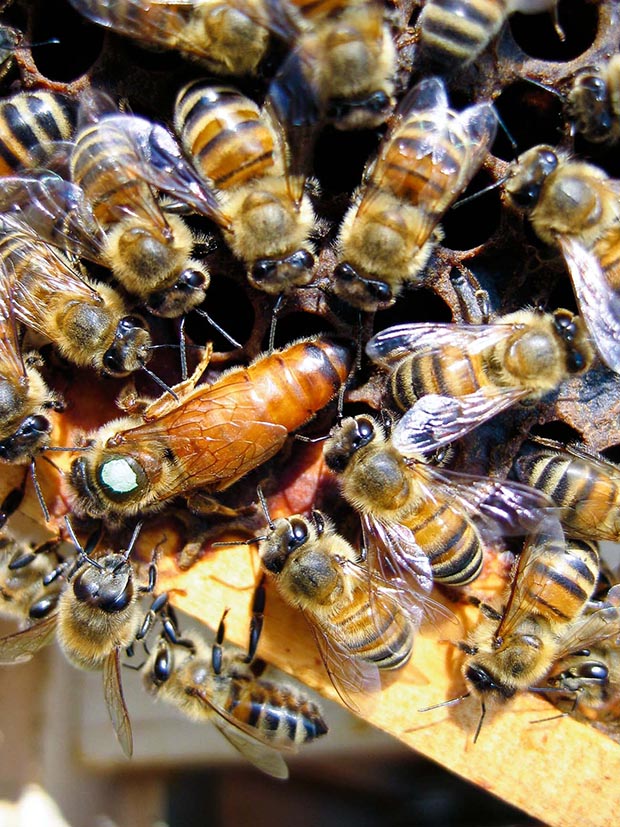Protein, fats and minerals: Why bees need pollen

Words: Jenny Somervell
Without quality pollen, bees suffer protein stress and weakened immune systems, making them more susceptible to parasites and diseases. The queen’s breeding output also slows so the output of the hive is reduced.
The typical honey bee colony, containing 50,000 to 60,000 workers, requires a continual supply of quality pollen and nectar.
Nectar in flowers provides sugar as an energy source. Its production is affected by temperature, soil moisture, fertility, sunlight levels, and plant growth and age.
Pollen supplies protein, fats, minerals and vitamins. Without these, bees’ energy levels begin to drop and they stop taking care of their young. The hive may begin to die off.
While sugars can be supplied to the hive by the beekeeper, pollen substitutes are more difficult. Pollen tends to be most scarce in spring, a time when colonies are trying to build up from low winter levels to a peak in the main honey flow (mid-November to mid-December).
Native trees and shrubs, pasture plants and weeds are especially important in the off seasons.
READ MORE
Bee talk: Trees with the highest pollen count and trees you should avoid
Love this story? Subscribe now!
 This article first appeared in NZ Lifestyle Block Magazine.
This article first appeared in NZ Lifestyle Block Magazine.
